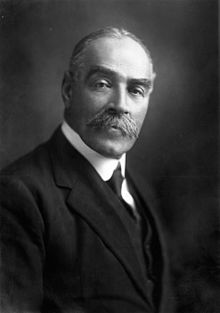i think i want to make one of these
Wednesday, December 31, 2014
Tuesday, December 30, 2014
anderson interview about zwiegg
ive been a little down on wes for a the last little while, but the budapest hotel has been growing on me more more and more, especially as i am increasingly interested in pre-war europe, and also from hearing your stories of switzerland
Hong Sang Soo
So now I've watched every single Rohmer film and have to wait till I am old before I can watch them again, I just watch Hong Sang Soo movies and which are a one-for-one Korean take on Rohmer and I get a hit of Korean daily life to boot as well.
https://bayproxy.uk/torrent/8549651/korean-our-sunhi-2013-dvdrip-x264-ac3-kg/
https://bayproxy.uk/torrent/8549651/korean-our-sunhi-2013-dvdrip-x264-ac3-kg/
Monday, December 29, 2014
Sunday, December 28, 2014
Saturday, December 27, 2014
Friday, December 26, 2014
Wednesday, December 24, 2014
Tuesday, December 23, 2014
Tinbergen's four questions
i like this model
| Diachronic versus synchronic perspective | |||
|---|---|---|---|
| Dynamic view Explanation of current form in terms of a historical sequence | Static view Explanation of the current form of species | ||
| How vs. why questions | Proximate view How an individual organism's structures function | Ontogeny Developmental explanations for changes in individuals, from DNA to their current form | Mechanism (causation) Mechanistic explanations for how an organism's structures work |
| Evolutionary (ultimate) view Why a species evolved the structures (adaptations) it has | Phylogeny The history of the evolution of sequential changes in a species over many generations | Adaptation (function) A species trait that evolved to solve a reproductive or survival problem in the ancestral environment | |
Monday, December 22, 2014
Yp
I think in all seriousness that any account of Australian contemporary art has to begin and end with the yellow peril
post script - if i ever get a commission to make a public sculpture in australia i will remake the yellow peril
actually i would do it abroad too
post script - if i ever get a commission to make a public sculpture in australia i will remake the yellow peril
actually i would do it abroad too
Sunday, December 21, 2014
Wednesday, December 10, 2014
Interesting article on Foucault and Neo-liberalism
here
also interesting re welfare state as an institutionalisation of emergent mutual (aid) societies / insurance networks
"These institutions were the result of the strong position held by the workers' movement after the Liberation. They were invented by the workers' movement itself. From the nineteenth century onward, workers and unions had established mutual societies, for example, to pay benefits to those unable to work. It was the very logic of the market and the enormous risks it imposed on the lives of workers that pushed them to develop mechanisms for the partial socialization of income.
In the early phase of the industrial revolution, only property owners were full citizens, and as the sociologist Robert Castel emphasizes, it was only with social security that the "social rehabilitation of non-property-owners" really took place. It was social security that established, alongside private property, a social property, intended to usher the popular classes into citizenship. This is the idea Karl Polanyi advances in The Great Transformation, which sees in the principle of social protection the aim of withdrawing the individual out of the laws of the market and thus reconfiguring relations of power between capital and labor."
also interesting re welfare state as an institutionalisation of emergent mutual (aid) societies / insurance networks
"These institutions were the result of the strong position held by the workers' movement after the Liberation. They were invented by the workers' movement itself. From the nineteenth century onward, workers and unions had established mutual societies, for example, to pay benefits to those unable to work. It was the very logic of the market and the enormous risks it imposed on the lives of workers that pushed them to develop mechanisms for the partial socialization of income.
In the early phase of the industrial revolution, only property owners were full citizens, and as the sociologist Robert Castel emphasizes, it was only with social security that the "social rehabilitation of non-property-owners" really took place. It was social security that established, alongside private property, a social property, intended to usher the popular classes into citizenship. This is the idea Karl Polanyi advances in The Great Transformation, which sees in the principle of social protection the aim of withdrawing the individual out of the laws of the market and thus reconfiguring relations of power between capital and labor."
Tuesday, December 9, 2014
Monday, December 8, 2014
metamodernist structure of feeling
this concept is like "really? you are saying that that is a thing?!",
i think it is a perfect example of some sort of saturation point i am reaching.
everything is like watching that letterman segment "is this a thing?"
Sunday, December 7, 2014
Friday, December 5, 2014
Thursday, December 4, 2014
Matthew Nathan
Matthew Nathan was an English Jew , who served as governor of Sierra Leone in 1899 and then Gold Coast, before becoming Governor of Hong Kong and later Queensland where he set up the Great Barrier Reef Committee. Interesting to look further to see if he brought any practices along with him in his travels. I wonder if there was some experience in West Africa that found its formalisation in Hong Kong.

Subscribe to:
Posts (Atom)








